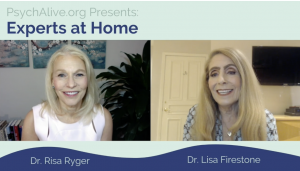How to be a good parent: It’s all about you!

So much of the information out there about how to be a better parent focuses on techniques for modifying your child’s behavior. But it is missing the mark. Research has shown that the one thing a person can do to be a better parent is to focus on developing him or herself. This is where a person has to start in order to be a nurturing, attuned mother or father. When it comes to parenting, there are many reasons for us to look inward and understand ourselves as people if our goal is to become a better parent.
Children stir up buried and unresolved feelings from our own childhood.
Our children often reawaken painful feelings that we long ago blocked from our awareness. The innocence, liveliness, and spontaneity of a child can stir up the hurts in our own childhoods and threaten to reactivate them. Our avoidance of these old feelings can cause us to pull away from relating closely with our children. At times when there is an emotional connection, we may be uncomfortable and even feel anger or resentment toward our child. If we stay defended against the feelings that are being stirred up in us, we will be cut off from our children and misattuned to what they are feeling and experiencing.
In the preface to Compassionate Childrearing, R.D. Laing described this:
Those outstretched arms open up a well of loneliness [in the adult]. But in these feelings, mixed up in them at once physical smells new and stale of ghosts of awakened sensations in oneself, are evoked, by that dead me, that me that was me, I see in the baby. The baby is still appealing to me with the language of the heart, the language I have learned to forget, and to mistrust with all my ‘heart.’
Instead of continuing to defend ourselves against feelings we suppressed in childhood, we can face them and make sense of any traumas that have been unresolved. Once we understand what happened in our own childhoods, we can be more effective parents and develop more secure attachments with our children. In Parenting from the Inside Out, Dan Siegel states, “The integration of our own self-knowledge facilitates our being open to the process of becoming emotionally connected with our children. Coherent self-knowledge and interpersonal joining go hand in hand.”
We project our critical feelings about ourselves on to our children.
The ambivalent attitudes we have toward our children are simply a reflection of the ambivalent attitudes we have toward ourselves. All people are divided in the sense that they have feelings of warm self-regard as well as feelings of self-hatred and self-depreciation. Therefore, it is not surprising that parents would extend these same contradictory attitudes toward their offspring. Parents’ attitudes toward their children are a by-product of their fundamental conflicts and ambivalence toward themselves.
It is not uncommon for parents to disown their self-critical attitudes and negative self-image by projecting them onto their child. When they do this, they are then overly critical of these projected qualities and traits in the youngster. As a result, children begin to see themselves through a negative filter, which will stay with them throughout their lives.
We can best help our children not by sacrificing ourselves for them, but by trying to fulfill our own lives. When we are involved in an honest pursuit of our goals, we serve as positive examples for our children. To teach our children how to live “the good life,” we have to genuinely value ourselves, accept all of our feelings, wants, and priorities, and actively participate in our own lives. To the extent that we retain our capacity for feeling and a willingness to invest fully in our lives, we will have a profound positive effect on the personal development of our children and on their future. Bruno Bettelheim said, “We need not make any claim to be perfect. But if we strive as best we can to live good lives ourselves, our children, impressed by the merits of living good lives, will one day wish to do the same.”
Instead of living their own lives, many parents live through their children. Rather than offering to their children, they are taking from them. These parents are in fact acting out emotional hunger, an unsatisfied longing for love and care caused by deprivation in their own childhood. They confuse intense feelings of need and with feelings of genuine love. Sustained contact with an emotionally hungry parent leaves a child feeling drained and empty.
Rather than striving to fulfill the role of a “perfect” parent or even a “good” parent, mothers and fathers can offer their children much more by being real with them; by admitting their shortcomings and weaknesses, sharing with them the history of their own formative years, revealing their personal struggles as well as their successes, and in general relating to them as honestly as possible. Ultimately, parents’ humanity and compassion for themselves are the most significant attributes for compassionate child-rearing.
Let your children love you
Parents who have grown up with an image of themselves as unlovable are often resistant to having close, tender moments with their children or to having their child look at them with love. When parents cannot bear to feel their children loving them, they respond negatively to them. Books on child-rearing fail to give this phenomenon the importance it deserves. In Conquer Your Critical Inner Voice I wrote:
Our children need to be able to feel their loving feelings for us, for the people we really are behind our roles as parents. If we deny this opportunity to our children, they will suffer emotionally. We need to learn to be receptive to our children’s spontaneous expressions of affection and love toward us. This seems obvious, yet it may be the most difficult task faced by us as parents.
Tags: child happiness, dealing with angry children, parent child communication, parenting, parenting advice, parenting skills, teenage depression








Leave a Reply